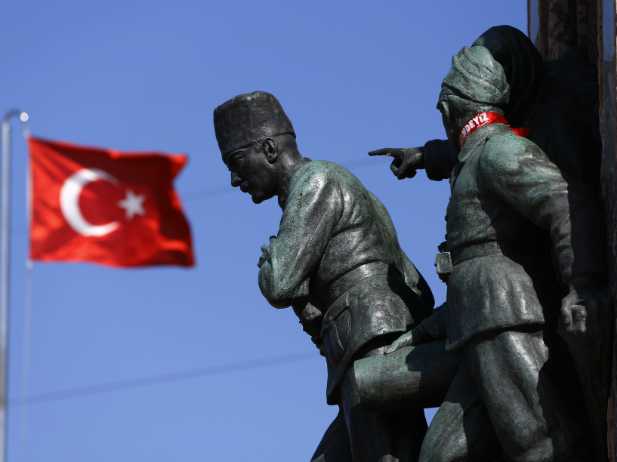MOSCOW. (RIA Novosti political commentator Pyotr Goncharov) – On his way back from the inconclusive Geneva talks between Tehran and the Iran Six over the disputed Iranian nuclear program, Tehran’s chief nuclear negotiator Saeed Jalili stopped in Ankara and held talks with Turkish Foreign Minister Ali Babajan.
Babajan, who also met with his Iranian counterpart Manouchehr Mottaki that same day, flew to Washington after the talks ended.
Tehran, which must reply to the Iran Six proposals offering the required amount of enriched uranium and state-of-the-art technology to Iran in exchange for freezing its enrichment activities by August 2, must accept the offer or face all-out political isolation.
“We are in the strongest possible position to demonstrate that if Iran does not act then it is time to go back to that (sanctions) track,” U.S. Secretary of State Condoleezza Rice said in her first comments after Washington broke from its usual policy and joined nuclear talks with Iran in Geneva on Saturday.
Iranian religious leader, Ayatollah Ali Khamenei, reportedly barred President Mahmoud Ahmadinejad from making any decisions on the national nuclear program. On July 23 Ahmadinejad, who was obviously taken aback by Western demands, said Iran would not deviate by one inch from its nuclear program.
It is therefore unclear whether Ankara will manage to save the situation and find a compromise.
Turkey has already said it would not take part in official talks, and that its main objective was to tone down the negotiators’ positions. It would be an understatement to say that Ankara and Tehran can profit from an alliance.
Turkey, which is still on track to become a member of the European Union, wants to score additional points, while Iran is playing for time. And no mediator can join the talks overnight.
Ankara wants Iran to assist in solving the Kurdish problem in Iraq, while Tehran would like to pump natural gas to Europe via Turkey. Moreover, Turkey is ready to mediate peace talks between Israel and Syria. Iran wants to mediate negotiations between Turkey and Armenia and between Armenia and Azerbaijan, another South Caucasian state patronized by Ankara.
The concerned parties will be unable to compromise on the Iranian nuclear program unless they heed the interests of Egypt, Israel, Jordan and the Arab states of the Persian Gulf.
A regional conference could be convened to discuss the Iranian nuclear program, enabling everyone to speak their mind on the issue, while the United States and the EU would deal with Israel.
Egyptian Foreign Minister Ahmed Aboul Gheit recently said Iran would be unable to solve its nuclear problem without the support of regional states, and that Tehran should also pay attention to their interests.
Each time the international community starts discussing the Iranian nuclear program, the Arab world reiterates its support for Tehran’s right to develop civilian nuclear facilities. This ambiguous stand implies that the Iranian nuclear program may have military implications.
Washington still prefers to negotiate separately with Arab countries. On July 21, Rice met in the UAE with the foreign ministers and other officials of the six Arab monarchies of the Gulf, namely, Bahrein, Qatar, Kuwait, the United Arab Emirates, Oman and Saudi Arabia, as well as Jordan, Egypt and Iraq, briefing them on the nuclear stand-off with Iran.
Under Secretary for Political Affairs William Burns was scheduled to brief Rice on the results of the July 19 Geneva talks involving chief EU foreign policy negotiator Javier Solana and Saeed Jalili, secretary of Iran’s Supreme National Security Council, during her stay in Abu Dhabi and to assess prospects for subsequent negotiations with Tehran.
Joint U.S.-French-British naval exercises in the region are strong evidence that Iran may face political and economic isolation.
Washington is now pursuing a more active policy with regard to the Iranian nuclear program, because it does not want the next administration to tackle this issue. Most importantly, major European powers, namely Italy, France, the United Kingdom and Germany, have also started getting tough on this issue.
Consequently, Ankara will have trouble mediating the talks between Iran and the West. More to the point, the outcome and the long-term situation in Iran will still depend on Tehran.
The opinions expressed in this article are the author’s and do not necessarily represent those of RIA Novosti.





